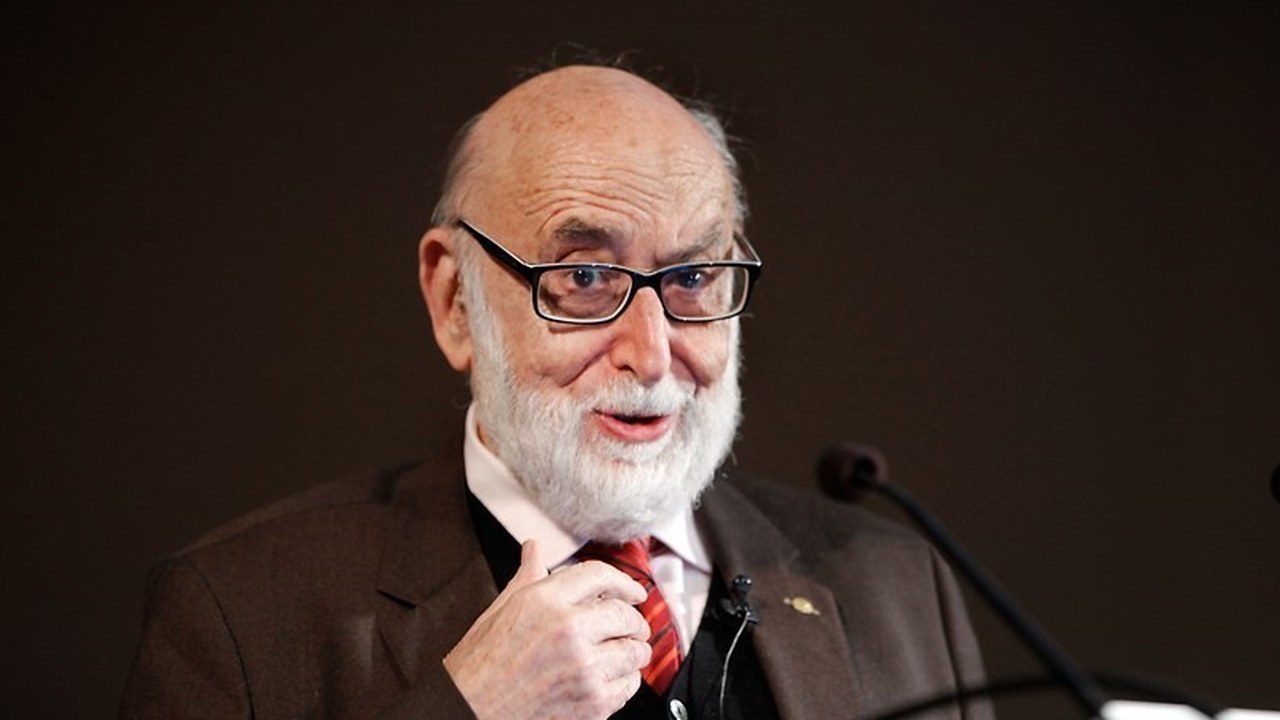François Englert: Reconstructing the Universe
Colloquia
- Speaker
-
François Englert
Theoretical Physics, Université Libre de Bruxelles, Belgium - When
-
2018/09/28
16:30 - Place
- DIPC
- Add to calendar
-
iCal

Theoretical Physics, Université Libre de Bruxelles, Belgium
In the nineteen sixties, critical experimental and theoretical discoveries led to a rapid development of our understanding both of the microscopic content of the Universe and of its macroscopic history. Exploring the past we can now essentially reconstruct the Universe roughly up to a hundredth of a billionth of a second after its birth; and our knowledge of the period before this epoch is limited and conjectural. I will explain the physics underlying this reconstruction of the Universe.
Prof. Englert's web page
Wikipedia article
About the speaker
François Baron Englert (*1932) is a Belgian theoretical physicist and 2013 Nobel Prize laureate. He obtained his PhD in physical sciences from the Université Libre de Bruxelles (ULB) in 1959. After a stay at Cornell University he returned to ULB in 1961 and was appointed university professor there in 1964. He co-headed the theoretical physics group at ULB from 1980 until becoming professor emeritus in 1998.
Prof. Englert has contributed to many areas of theoretical physics, among them quantum field theory, cosmology, string theory and quantum gravity. He is best known for his discovery (together with Robert Brout, and contemporaneously with four other colleagues) of the mechanism by which mass could arise in local gauge theories through spontaneous symmetry breaking (now known as the Brout-Englert-Higgs-Guralnik-Hagen-Kibble mechanism), which lead to the discovery of the "Higgs Boson" at CERN in 2013.
Englert's work has been recognized with many awards, honorary degrees and professorships, among them the Wolf Prize (2004, together with Brout and Higgs), the Sakurai Prize (2010, shared with Guralnik, Hagen, Kibble, Higgs, and Brout), the Nobel Prize (2013, together with Higgs), and the Prince of Asturias Award for Scientific and Technological Research (2013, shared with Higgs and CERN).
